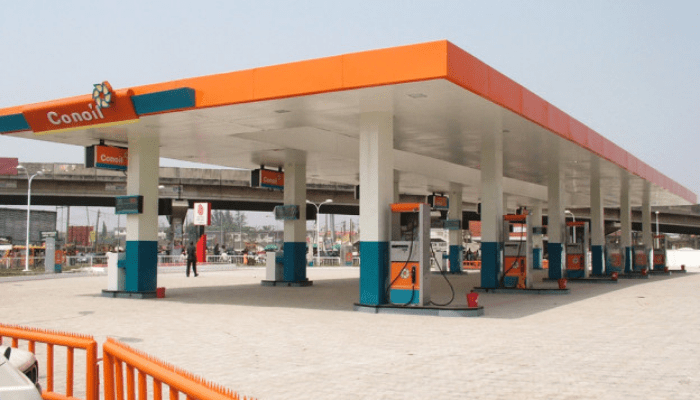Conoil Plc, a major player in the downstream oil and gas sector has recorded an improvement in its first-half 2024 financial performance, despite Nigeria’s tough business environment.
Data gleaned from the firm’s latest financial results showed a 28.3 percent increase in after-tax profit to N8.02 billion in H1, up from N6.25 billion in the corresponding period of 2023.
The company’s growth was evident in its share price performance, which rose to N144 as of August 27 from N90.9 as of April 5, making it one of the top-performing stocks in the oil and gas sector of the Nigerian Exchange Limited.
Here are key highlights from the company’s financial results
Cash from operating activities showed resilience
In the first half of 2024, Conoil demonstrated resilience in its cash from operating activities, reflecting the core business activity’s strength.
The company achieved a positive N26 billion in cash generated from operating activities during this period compared to a loss of N876 million in H1 2023.
This outcome can be attributed to two primary factors such as the receipt of advances from customers and an uptick in trade and other payables. Conoil’s trade and other payables rose by 234 percent to N10.7 billion, up from N3.2 billion.
Revenue more than doubles to N180bn
Since the removal of subsidy last year, petrol prices in Africa’s most populous economy have increased. According to the latest data from the National Bureau of Statistics, the average petrol price across Nigeria was N770.54 per litre in July indicating a 28.35 percent increase from N600.35 in the corresponding month of the previous year.
The downstream company’s revenue rose to N180 billion in the first six months from N87 billion in the same period of last year on the back of increased sales of its white products which accounted for 97 percent of the firm’s total revenue.
The firm is involved in the sale of regulated gasoline and kerosene, diesel, aviation fuel, and low-pour fuel. Other business activities include the production and marketing of lubricants under the brand name
Cash liquidity saw a positive turnaround
Cash equivalents represent investment securities designed for short-term investment purposes, known for their high credit quality and liquidity.
In H1, Conoil’s cash and cash equivalents rose to N2.14 billion compared to a negative N1.41 billion.
The company disclosed in its 2023 half-year report that “Negative cash and cash equivalent position arose basically as a result of the need to invest more in inventory stock in the first quarter of the year.”
Cash generated from operating activities for the first six months surged to N26 billion from a negative N876 million in the same period of 2023.
However, cash from investing activities experienced a negative trend, reaching N1.64 billion and net cash cash from financing activities amounted to N2.2 billion.
Finance costs surged by 208%
As a result of the high interest rate impacting the cost of borrowing of Nigerian firms, Comoil’s finance cost rose by 208 percent in the first six months of 2024.
Interest on bank overdrafts drove the oil marketer borrowing cost to N2.21 billion from N717 million.
The CBN in July raised its monetary policy rate for the fourth straight time by 800 basis points to 26.75 percent in a bid to fight inflation. In May, the CBN increased the interest rate by 150 basis points to 24.75 percent.






